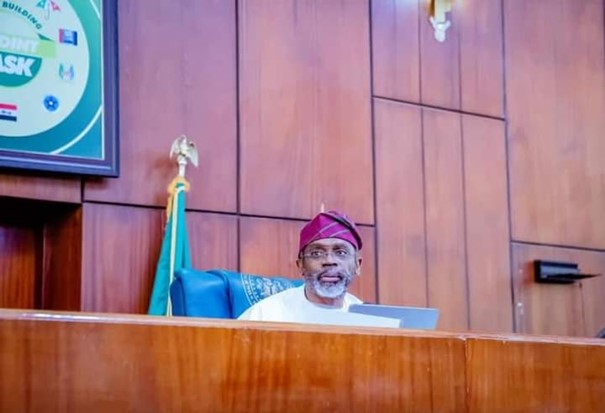Nigeria’s House Of Reps Speaker Wants Social Media Regulation With ‘Balance’
The Speaker says social media regulation is in the interest of the security and public safety.

Femi Gbajabiamila, the speaker of Nigeria’s House of Representatives, has canvassed a regulation that would control engagement on social media in the interest of security, peace, and unity of the country.
Featuring on a programme on Channels Television on Sunday, June 27, 2021, Gbajabiamila said social media must be regulated to protect Nigerians against its dark sides.
This comes more than three weeks after the Nigerian government had suspended Twitter activities in the country for “providing a platform used by those with the intention of destroying Nigeria.”
The government has since come under heavy criticism for attempting to gag freedom of speech.
But Gbajabiamila said freedom of speech is not absolute, adding that a balance in the regulation of social media must be struck to avert infringement of rights.
“Like everything in life, there has to be regulation. We know that social media is perhaps the most potent instrument that can be used for good and can be used for the negative,” he said.
“We must strike a balance, where people’s rights to speech are not infringed upon but where your rights to speech ends or begins, it is where my own rights or next person’s rights to protection begins.”
The speaker said the National Assembly had previously come under fire for attempting to regulate social media.
In 2015, a bill to regulate social media was first considered in the National Assembly but failed to pass into law after a public outcry.
Again in 2019, a bill termed “Protection from Internet Falsehood and Manipulation Bill 2019” which could allow law enforcement agencies to order internet service providers to disable internet access was introduced in the National Assembly despite existing cyber laws covering the bill’s objectives. It was later dropped at a second reading.
Critics of the bill argued that it would be used to prosecute genuine criticism of the government.
Gbajabiamila said each time the National Assembly contemplates to regulate social media, “people will kick. Why did you kick? They say freedom of speech.”
He reiterated that regulating social media is in the interest of security and public safety.
“It is a delicate balance. Very, very delicate. It is something we need to do as responsible. You heard of cyberbullying, children nagging themselves, killing themselves because of what is on social media. We do not want that,” he said.
“It is something we need to do because we have a responsibility to protect every single citizen in this country and that is what we must do.”
On Twitter ban, the speaker said the National Assembly was yet to take any position on the issue.
“The National Assembly has not taken a position. Before you take a position, you have to listen to all sides. It cannot be knee-jerky. We have a responsibility, if I was on the outside I know the position I will take,” he said.
“On the inside, I have been elected by the people, I have to be on the side of the people but I also have to know exactly what the facts and the true situation is. It is not a beauty contest.”
Support Our Journalism
There are millions of ordinary people affected by conflict in Africa whose stories are missing in the mainstream media. HumAngle is determined to tell those challenging and under-reported stories, hoping that the people impacted by these conflicts will find the safety and security they deserve.
To ensure that we continue to provide public service coverage, we have a small favour to ask you. We want you to be part of our journalistic endeavour by contributing a token to us.
Your donation will further promote a robust, free, and independent media.
Donate HereStay Closer To The Stories That Matter




